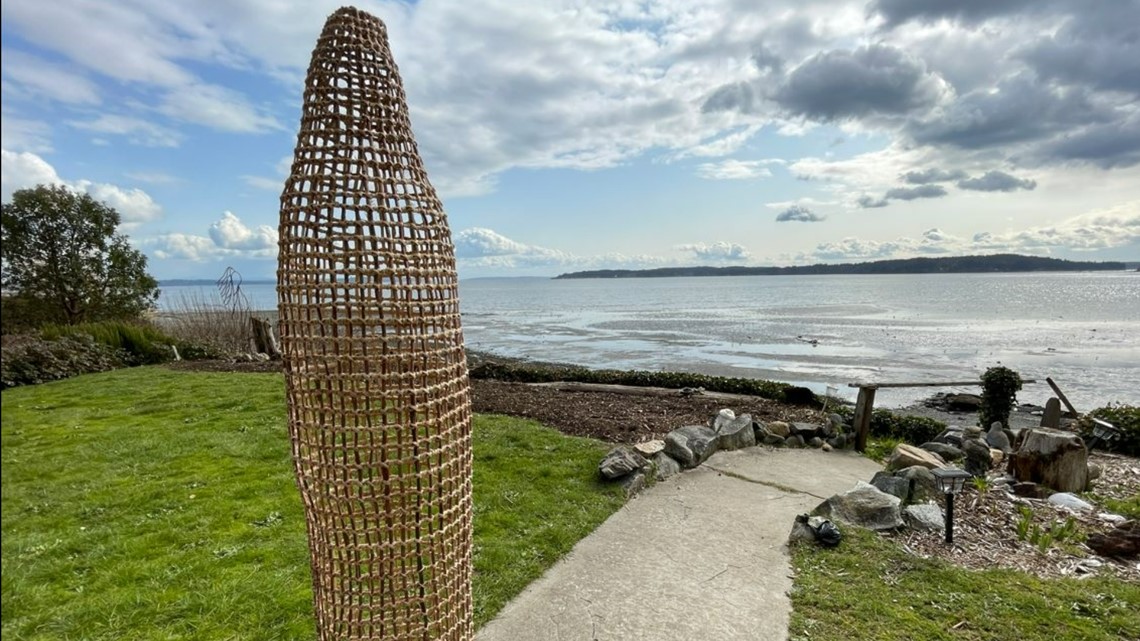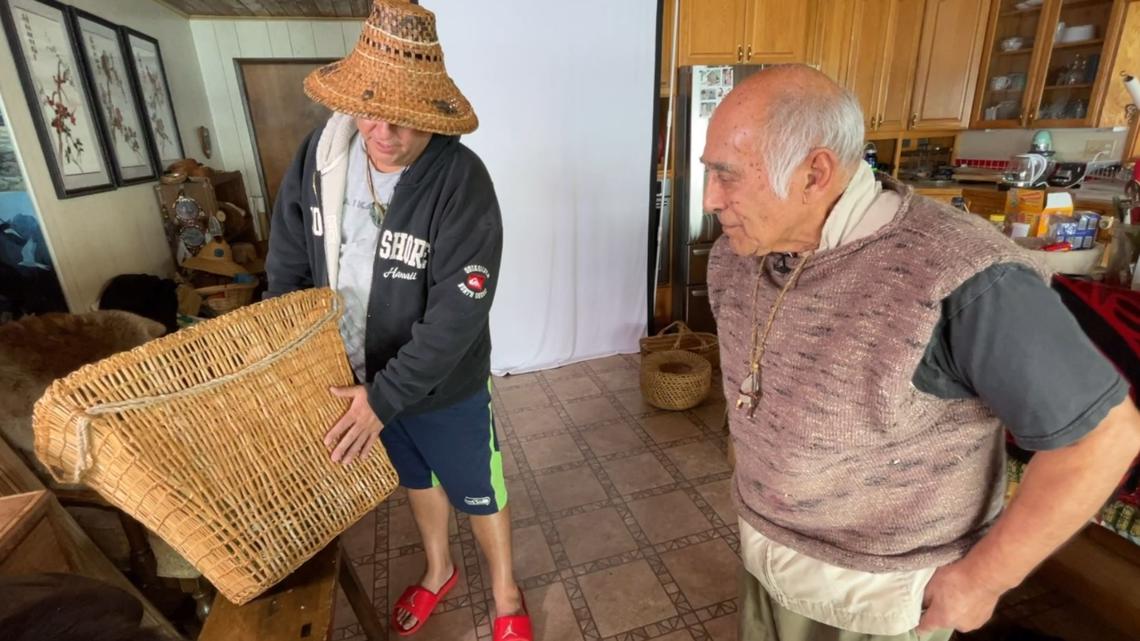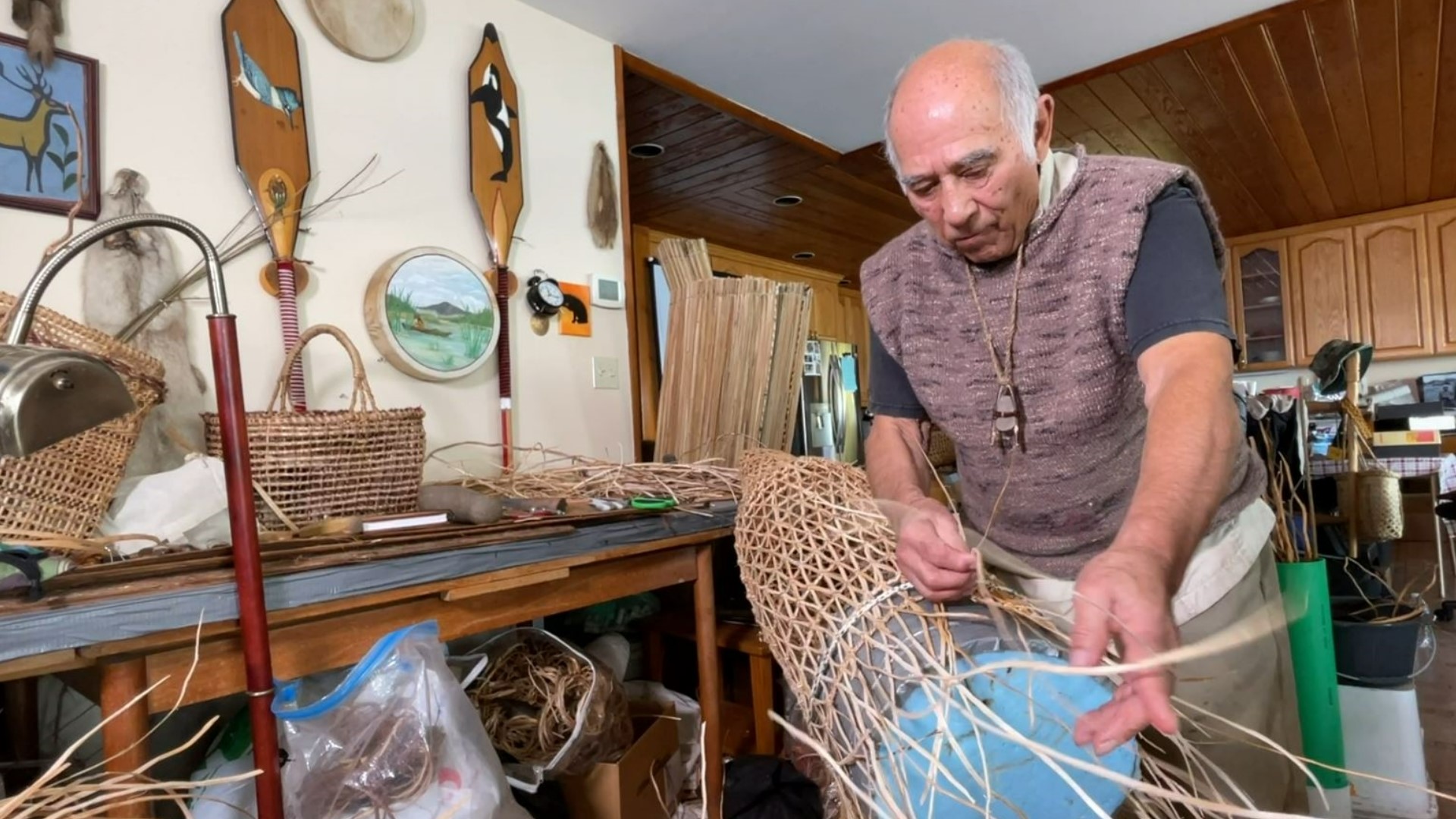INDIANOLA, Wash. — The National Endowment for the Arts has presented Suquamish basket maker Ed Carriere with its highest lifetime honor. He's been named a National Heritage Fellow for dedicating his life to preserving an art form dating back thousands of years.
"I think a lot about my ancestors and I think a lot about the basket that I'm working on," Carriere said, hunched over a salmon trap basket in the Indianola home in which he was born.
"I'm going to make sure it's nice and tight and snug," he said, pulling on cedar roots he's weaving together.
At age 88, Suquamish elder Ed Carriere is a living link to hundreds of generations, dating back thousands of years.
"I'm going back to King Tut," he laughed.
For millennia, the Suquamish have lived off the Salish Sea.
"There's more food out there than you could ever want to harvest and eat," he said.
Carriere was a schoolchild when he began studying the way his great grandmother, Julia Jacob, weaved clam baskets out of cedar roots and spruce boughs.
"The old Indian way was you didn't dare ask any questions," Carriere said. "Ask a question, and you'd be in deep trouble so I learned by observing."
Carriere made his first basket at age 14. But it wasn't until he was in his 30s that he became serious about the craft. And its importance to Suquamish culture.
"If I don't do this, it's going to die," he said.


Salmon Trap baskets. Cooking baskets. A bark basket for gathering berries. Carriere had already made hundreds of baskets when at the turn of the century archeologists discovered fragments of ancient baskets in the Pacific Northwest, some dating back more than 4000 years.
"It drove me to go to the museums and study those and look at them," Carriere said. "Oh well, I can weave that way, because they were made out of the same fibers. The cedar root, the spruce route. So I went to all the museums and I was able to take pictures."
By replicating weaves that might have been done by elders from hundreds of generations before him, Carriere has earned a worldwide reputation. The NEA honor comes with a $25,000 check Carriere plans to use for educational purposes.


Carriere knows it's important to pass on his knowledge. For four years John Mason of the Squaxon Tribe has been apprenticing with him.
"I didn't know how important it was to me until I started listening to Ed," Mason said.
A well made basket, Mason has learned, is a lot like a well lived life.
"This is the foundation of your life," Mason said pointing to the bottom of a sturdy basket he made. "You want a strong foundation, then you come up into the body and you always want a beautiful ending to your life so you want to put a little extra attention and special care to do the ending, over the edge of the basket."
Carriere is not thinking about his own beautiful ending. Not when there's so much beauty to be made.
"I enjoy weaving. It keeps my hands moving," he laughed.
KING 5's Evening celebrates the Northwest. Contact us: Facebook, Twitter, Instagram, Email.

